June 30th, 3:40 - 5:00 pm at Xi’an Jiaotong University (517 School of Management, 5FL)
Paper Session A0: AI Generated Content (Chair: Taeho Hong)
Sang-Hyeak Yoon and So-Hyun Lee, “Exploring the Pros and Cons of Generative AI Services: A Comprehensive Analysis of ChatGPT and Its Applications”
Kangxin Hui, Shan Liu and Baojun Gao “AIGC as the platform complementor: Will the Competitive Intensity of crowdsourcing contests be enhanced?”
Yuansong Piao, Yixin Qiu, Baek Jeong and Kyoung Jun Lee, “An Explorative Study for Federated Learning-based AI Sharing Platform Development Methodology”
Olga Chernyaeva and Taeho Hong, Integrating Deep Learning and Explainable AI to Enhance the Accuracy and Transparency
July 1st, 2:00- 3:20 pm (Conference Room No.1, No. 2, No.3, No.5, Nanyang Hotel)
Paper Session A1: Performance of AI Models (Chair: Sang-Hyeak Yoon)
Seoyoun Lee, Yoko Ogushi, Jaehyun Park and Younghoon Chang, “Antecedents of Artificial Intelligence Training Data Quality: An Empirical Study”
Mingxuan Sun, “Can Reinforcement Learning Improve Order Decision in Multi-echelon Inventory Systems? A Linear System Case Study”
Minju An, Sehyoung Kim, Juyoung Kang and Hansol Lee, “Developing a Text Mining-Based Taxonomy for Automobile Insurance Fraud Detection”
July 1st, 2:00- 3:20 pm
Paper Session B1: Crossborder E-Commerce (Chair: Huijie Li)
Huijie Li, Jin Li, Zhe Bai and Shuyi Ma, “Prediction of Cross-border Data Transmission based on VMD-ARIMA”
Xueyan Yang and Tianxin Ji, “How to Break the Wall of Cross-border E-commerce Export of Characteristic Agricultural Products? - Analysis Based on the Configuration Perspective”
Yang Liu, Shaomin Yang, Na Lv, Xin Gao, Chunyan Qiu,“Empirical Evidence of Mobile Shopping APP Consumer Usage Intention”
July 1st, 2:00- 3:20 pm
Paper Session C1:Social Commerce (Chair: Jinglei Tang)
Jinglei Tang, Shan Liu, Baojun Gao and Qing Zhu, “Does Content Co-Creation Foster User Engagement? Evidence from an Online Video Community”
Qing-Dan Jia and Hua Chen, “Exploring the Role of Social Commerce in Influencing Consumers' Purchase Decisions in CBEC: the Perspective of Signaling Theory”
Chengnan Jiang and Sung-Byung Yang, “Herding Behavior in Social Live Commerce: An Experimental Study”
Yizhen Wei and Kai Li, “How do Online Sellers Operate Social Media? An Evidence from Weibo and Taobao”
July 1st, 2:00- 3:20 pm
Paper Session D1: Consumer Behaviors (Chair: Weiwei Han)
Shuxian Li and Sung-Byung Yang, “When Does Play Turn to Stress? Exploring the Negative Effects of Gamification on Shopping Apps”
Weiwei Han, “The Neurological Impact of OWOM on Purchase Decision”
Yuxue Shi, Xianfeng Zhang, Xinlei Cui and Ping Wang, “Will Coolness Bring in Customer Citizenship Behavior? A Study in Smart Robot Restaurant”
Xiaorong Wang, Yifan Ding and Yinghua Huang, “Consumer Psychology and Behaviors in Peer-to-Peer Accommodation: A Systematic Review (2008-2022)”
July 1st, 3:40-5:00 pm
Paper Session A2: Text Mining by Topic Modeling and Sentiment Analysis (Chair: Suhn Beom Kwon)
Hyeon-Kyung Kim, Junghoon Lee and Sunku Kang, “Topic Modeling on Patent and Article Big data Using BERTopic and Analyzing Technological Trends of AI Semiconductor Industry”
Jeongrok Choe, Junghoon Lee and Juyeon Kim, “A Study on Technology Trend Analysis Using Dynamic Topic Model: Focusing on domestic/foreign hydrogen fuel cell technology”
Mingqi Fu, Jae Kyu Lee, Jiaxin Li and Shan Liu, “What do Customers say on the Online Reviews about their Satisfaction?”
Jae Ik Ahn, Suhn Beom Kwon, Gun Hi Kim and Gyoo Gun Lim, “The Impact of Economic Sentiment on E-Commerce in South Korea”
July 1st, 3:40-5:00 pm
Paper Session A2: Text Mining by Topic Modeling and Sentiment Analysis (Chair: Suhn Beom Kwon)
Hyeon-Kyung Kim, Junghoon Lee and Sunku Kang, “Topic Modeling on Patent and Article Big data Using BERTopic and Analyzing Technological Trends of AI Semiconductor Industry”
Jeongrok Choe, Junghoon Lee and Juyeon Kim, “A Study on Technology Trend Analysis Using Dynamic Topic Model: Focusing on domestic/foreign hydrogen fuel cell technology”
Mingqi Fu, Jae Kyu Lee, Jiaxin Li and Shan Liu, “What do Customers say on the Online Reviews about their Satisfaction?”
Jae Ik Ahn, Suhn Beom Kwon, Gun Hi Kim and Gyoo Gun Lim, “The Impact of Economic Sentiment on E-Commerce in South Korea”
July 1st, 3:40-5:00 pm
Paper Session B2: Effect of Online Consumers’ Review (Chair: Sung-Byung Yang)
Yan Sun and Sung-Byung Yang, “The Impact of Human Faces in User-Generated Photos: Evidence from Online Reviews”
Qingping Zhao and Xinyu Sun, “Popular Q&As and Online Reviews: The Effects by Experience Products and Search Products”
Jongpil Yoon, Hanjin Lee, Daihwan Min and Ucheol Jung, “Impact of Purchase Reviews on Helpfulness: Evidence from an Online Grocery Platform in South Korea”
July 1st, 3:40-5:00 pm
Paper Session C2: Trust and Privacy (Chair: Junghoon Lee)
Ahro Kum, Junghoon Lee and Daeun Lee, “A Research on the Transference of Trust from Service Provider to MyData Banking Service”
Chia Wei Lu, Jin Li and Shuang Wu, “Impacts of Specialist Responses on Direct Rewards: Credibility and Channel Moderations”
Yangyin Lin, Qiang Ye and Hao Xia, “A Blockchain and Privacy Computing-enabled Framework for Data Sharing in FinTech Lending”
Li Gui and Xinyu Sun, “The Effect of Airbnb Host Description on Consumer Behavior”
July 1st, 3:40-5:00 pm
Paper Session D2:Comparison and Purchase Decision (Chair: Wei Wang)
Zhu Luo and Tianqing Wang, “Effect of Broadcasting Mode on Purchase Decision”
Xuyuan Wei, Yi Cheng and Xiaoyu Xu, “Study on Vlog Dependency Path Based on Comparison of Two Products”
Ruifa Zhou and Sung-Byung Yang, “Consumer Resistance to Food Ordering with the WeChat Mini-Program: A Mixed-Methods Approach”
July 1st, 5:20-6:40 pm
Paper Session A3: AI and Human: Collaboration and Competition (Chair: Dan Song)
Dan Song and Zhaohua Deng, “The Effect of AI’s Estimated Accuracy and Actual Performance on Human-AI Collaboration”
Minhong Zhou, Xiao Y Xu and Bo Zhou, “Weibo users' views on AI tools such as ChatGPT --based on LDA and NLP sentiment analysis”
Peng Lu and Xianfeng Zhang, “Robotic or human disinfection? Effect on response efficacy and stay intention”
Guoxin Wang, Shouwang Lu and Kanliang Wang, “Complementing or Compromising? The Effects of AI-Human Decision Order on Users’ Evaluation”
July 1st, 5:20-6:40 pm
Paper Session B3:
Live Commerce
(Chair: Gyoo Gun Lim)
Dong Woo Kim, Gunhi Kim, Jae Ik Ahn and Gyoo Gun Lim, “A Study on Demand Forecasting for Live-Commerce Cosmetics”
Kuang Wu, “How the human contact degrees of recycled water products influence consumers’ online review search behavior: Evidence from
eye-tracking sensors”
Xingfen Liu, Zhongbao Zhou and Feimin Zhong, “Resolving Information Reliability Issue in Live Streaming through Blockchain Adoption?”
July 1st, 5:20-6:40 pm
Paper Session C3:
Healthcare and Digital Policy
(Chair: Shiyi Hu)
Yichan Wei, Xiaoxiao Liu, Huijing Guo, Yan Li and Mingye Hu, “The Hidden Cost of Internet Healthcare Coverage: The Erosion of Patient Data Quality”
Licai Lei and Shiyi Hu, “Does Peer Really Influence Doctors’ Knowledge Contribution Behavior? Evidence from Online Health Communities”
Chengman Jin, Baek Jeong and Kyoung Jun Lee, “Research on Automatic Policy Classification for China’s Policy”
Li Shuang, Azhan Rashid Senaw and Nur Azirah Zahida Mohamad Mohamad Azhar, “Digital Literacy’s Contribution to Rural Revitalization”
July 1st, 5:20-6:40 pm
Paper Session D3:
Digital Innovation
(Chair: Jinbing Qin)
Wang Xiaojuan and Fan Xiaoting, “Spatial Correlation of Resources and Innovation Efficiency in High Tech Industries”
Dejing Kong, Jinbing Qin and Yufei Liu, “Dynamic Innovative Evolution Path of Digital Ecosystem”
Huang YiHan,Cheng Fan,Li LiWei, “The impact of digital transformation of small and medium-sized enterprises on business model innovation based on organizational ecology”
YunboDing, Qinghong Shuai, Jiao Liu, Luyue Zhang and Wanqiu Deng, “The Application of Digital Platform in the Digital Transformation of Construction Industry - Case Study of Huashi Group Co.
Poster Papers
-
Sang Kon Lee, Ha Yan Jeon, Philsung Kim and Min Sun Kim, Relative Importance of Factors for Implementing Living Labs Using SNA and AHP Techniques: Korean Government-supported Projects Case
-
Ji Mingyu and Wei Ning, eRobot: Analysis, Design and Implementation of an E-commerce Robot
-
Huan Sun, Wei-Hsi Hung and Fan Yang, A meta-analytic review of vlogs research
-
Huijie Jin, Shouwang Lu and Kanliang Wang, Investigating the Role of Uncertain Incentive Allocation in Online Social Referral Programs


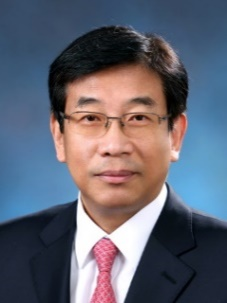 Jae Kyu Lee
is a Distinguished Professor of School of Management at Xi’an Jiaotong University and Professor Emeritus of Korea Advanced Institute of Science and Technology (KAIST). He has been professor of KAIST since 1985, and finished his tenure as HHI Chair Professor. He received fellow and LEO Award and served the President (2015-6) of Association for Information Systems. He is the founder of Principles for the Bright Internet and founded Bright Internet Research Center at KAIST and Xi’an Jiaotong University. He also founded the Bright Internet Global Summit and Bright Internet Project Consortium in 2019 as posted at www.brightinternet.org. He received his Ph.D. in Information and Operations Management from the Wharton School, University of Pennsylvania in 1985. His research area covers AI, eCommerce, information systems, and Bright Internet.
Jae Kyu Lee
is a Distinguished Professor of School of Management at Xi’an Jiaotong University and Professor Emeritus of Korea Advanced Institute of Science and Technology (KAIST). He has been professor of KAIST since 1985, and finished his tenure as HHI Chair Professor. He received fellow and LEO Award and served the President (2015-6) of Association for Information Systems. He is the founder of Principles for the Bright Internet and founded Bright Internet Research Center at KAIST and Xi’an Jiaotong University. He also founded the Bright Internet Global Summit and Bright Internet Project Consortium in 2019 as posted at www.brightinternet.org. He received his Ph.D. in Information and Operations Management from the Wharton School, University of Pennsylvania in 1985. His research area covers AI, eCommerce, information systems, and Bright Internet.
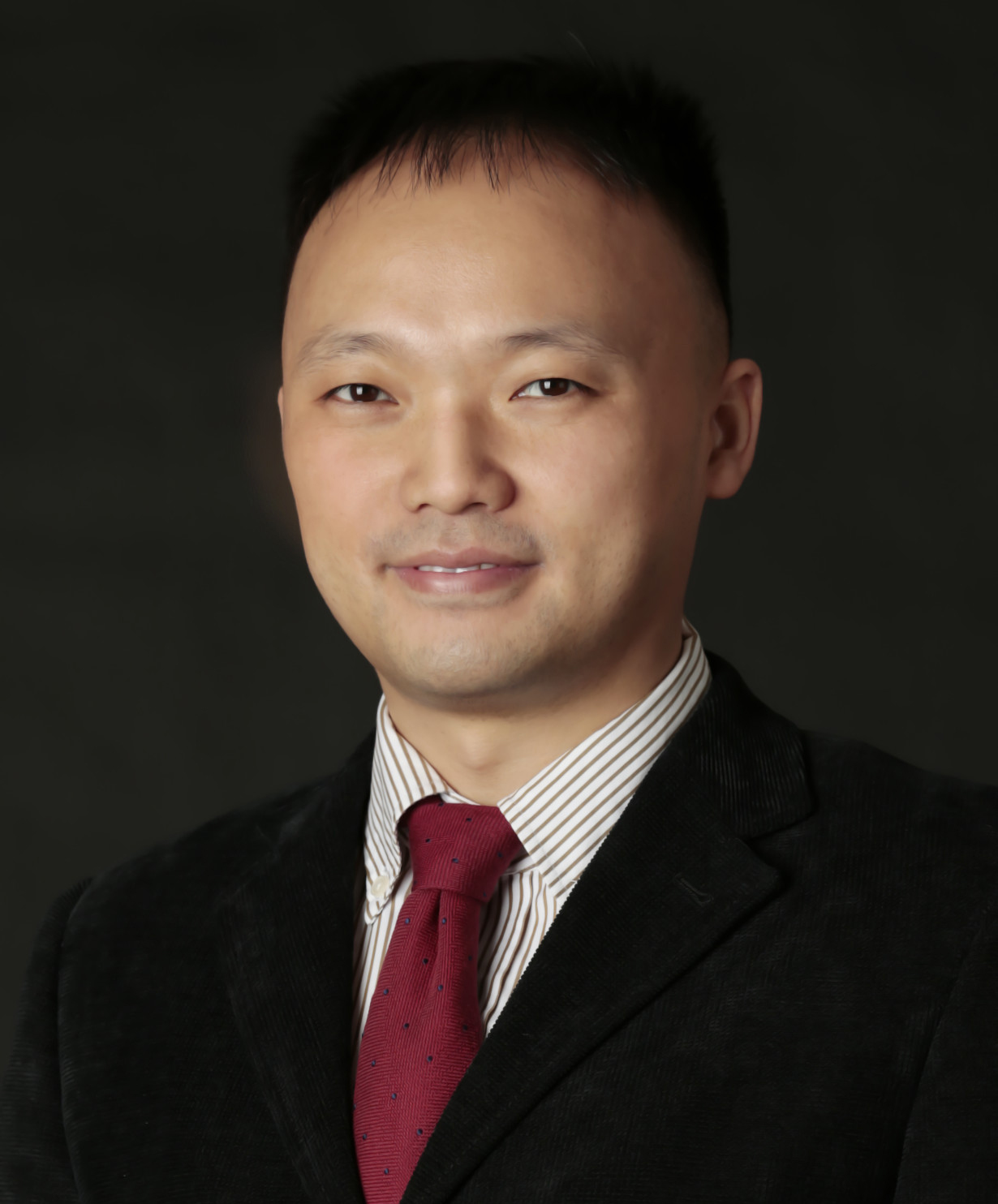 Shan Liu
is a Professor of information systems and e-commerce and Associate Dean of School of Management at Xi’an Jiaotong University. He serves as the founding executive editor of Data Science and Management (Elsevier). He received the Ph.D. degree in management science and engineering from the Huazhong University of Science and Technology, Wuhan, China, in 2009. He has authored or coauthored more than 50 refereed articles, including articles that have appeared or accepted in the Journal of Operations Management, the IEEE Transactions on Engineering Management, Information Systems Journal, the European Journal of Information Systems, the European Journal of Operational Research, and Information and Management. His research interests include IT project management, E-commerce, and data analytics.
Shan Liu
is a Professor of information systems and e-commerce and Associate Dean of School of Management at Xi’an Jiaotong University. He serves as the founding executive editor of Data Science and Management (Elsevier). He received the Ph.D. degree in management science and engineering from the Huazhong University of Science and Technology, Wuhan, China, in 2009. He has authored or coauthored more than 50 refereed articles, including articles that have appeared or accepted in the Journal of Operations Management, the IEEE Transactions on Engineering Management, Information Systems Journal, the European Journal of Information Systems, the European Journal of Operational Research, and Information and Management. His research interests include IT project management, E-commerce, and data analytics.
 This speech covers the revolutionary aspects of hyperscale foundation models, with a specific focus on
GPT-4, from conversational, generative, and general AI perspectives. Additionally, we will examine the
impact of the GPT revolution on various industries and explore new business models using case studies,
as well as discuss future prospects. Lastly, we will share ongoing research and development efforts to
integrate transformers with federated learning.
This speech covers the revolutionary aspects of hyperscale foundation models, with a specific focus on
GPT-4, from conversational, generative, and general AI perspectives. Additionally, we will examine the
impact of the GPT revolution on various industries and explore new business models using case studies,
as well as discuss future prospects. Lastly, we will share ongoing research and development efforts to
integrate transformers with federated learning.
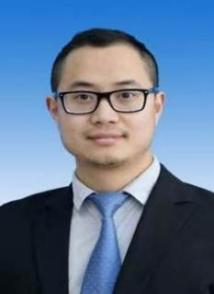 Yu Zhao,
professor, who obtained his joint PhD from the University of Rochester, USA, is also recognized as a senior visiting scholar at University of Paris 6, France. He is selected for the Guanghua Hundred Talent Program at Southwestern University of Finance and Economics, and serves as a committee member of the Natural Language Understanding Special Committee of the Chinese Association for Artificial Intelligence, as well as the Deputy Chair of the Natural Language Understanding Special Committee at the Sichuan Computer Society. His main research interests lie in the areas of large language models, general artificial intelligence, natural language processing, and fintech. He has published more than 30 papers in internationally renowned journals and conferences, such as IEEE TKDE, IEEE TNNLS, IEEE TMM, IEEE TMC, ACL, and ICME. Prof. Zhao has been funded by a Youth Fund of the National Natural Science Foundation of China, a Key Project Fund of the National Natural Science Foundation of Sichuan Province, and a General Fund of the National Natural Science Foundation of Sichuan Province. Finally, he has written one monograph and co-authored one textbook.
Yu Zhao,
professor, who obtained his joint PhD from the University of Rochester, USA, is also recognized as a senior visiting scholar at University of Paris 6, France. He is selected for the Guanghua Hundred Talent Program at Southwestern University of Finance and Economics, and serves as a committee member of the Natural Language Understanding Special Committee of the Chinese Association for Artificial Intelligence, as well as the Deputy Chair of the Natural Language Understanding Special Committee at the Sichuan Computer Society. His main research interests lie in the areas of large language models, general artificial intelligence, natural language processing, and fintech. He has published more than 30 papers in internationally renowned journals and conferences, such as IEEE TKDE, IEEE TNNLS, IEEE TMM, IEEE TMC, ACL, and ICME. Prof. Zhao has been funded by a Youth Fund of the National Natural Science Foundation of China, a Key Project Fund of the National Natural Science Foundation of Sichuan Province, and a General Fund of the National Natural Science Foundation of Sichuan Province. Finally, he has written one monograph and co-authored one textbook.  Chen Wang
is a professor of Graphic & Interactive design at California State University; With expertise in user interface and user experience design, his research spans various design fields, including semantic studies, data visualization, accessibility design, information design and branding.
Chen Wang
is a professor of Graphic & Interactive design at California State University; With expertise in user interface and user experience design, his research spans various design fields, including semantic studies, data visualization, accessibility design, information design and branding.
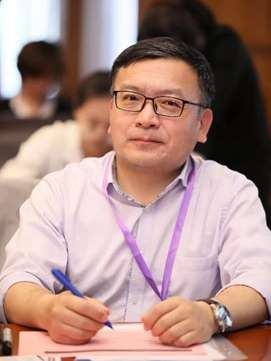 Jie Ma
serves as the Research Director at the Wuxi Tsinghua Institute of Applied Technologies. He obtained his PhD from University of Portsmouth in the UK. Previously he worked as the Research Director for the Institute for Data Science in Tsinghua University, and once held the position of CTO at a prominent big data company. With a strong background in big data analytics, Dr. Ma's current focus lies in the field of post-quantum cryptography (PQC).
Jie Ma
serves as the Research Director at the Wuxi Tsinghua Institute of Applied Technologies. He obtained his PhD from University of Portsmouth in the UK. Previously he worked as the Research Director for the Institute for Data Science in Tsinghua University, and once held the position of CTO at a prominent big data company. With a strong background in big data analytics, Dr. Ma's current focus lies in the field of post-quantum cryptography (PQC).
 Mingming Xie
is the founder and president of Beijing Sitai Zhengde Technology Development Co., Ltd. After obtaining his MBA degree from Texas Tech University, he founded SOFT TECH company in Silicon Valley, USA, in 1994. In 1999, invited by the State Council Informatization Leading Group and the National Development and Reform Commission, he settled down in Beijing and has been dedicated in China's software industry. His contributions include first initiating and promoting Capability Maturity Model Integration (CMMI) in China, involved into planning software industry at the state level, developing software project management
Mingming Xie
is the founder and president of Beijing Sitai Zhengde Technology Development Co., Ltd. After obtaining his MBA degree from Texas Tech University, he founded SOFT TECH company in Silicon Valley, USA, in 1994. In 1999, invited by the State Council Informatization Leading Group and the National Development and Reform Commission, he settled down in Beijing and has been dedicated in China's software industry. His contributions include first initiating and promoting Capability Maturity Model Integration (CMMI) in China, involved into planning software industry at the state level, developing software project management  Xiaoyi Yao
is an international partner at the renowned international law firm, King & Wood Mallesons. Holding a Ph.D. in Biochemistry, her expertise lies in intellectual property litigation. Dr. Yao is also adept at addressing complex legal matters and has provided guidance to clients on the potential rights and risks associated with cutting-edge AI technologies, such as ChatGPT.
Xiaoyi Yao
is an international partner at the renowned international law firm, King & Wood Mallesons. Holding a Ph.D. in Biochemistry, her expertise lies in intellectual property litigation. Dr. Yao is also adept at addressing complex legal matters and has provided guidance to clients on the potential rights and risks associated with cutting-edge AI technologies, such as ChatGPT.
 This speech will present the evolution of AIGC (Artificial Intelligence Generated Content) from simple
reproduction to advanced comprehension, its current state, and future trend. We will explore the
feasibility and strategy of combining deep learning with cognitive learning towards the ultimate goal of
achieving artificial general intelligence. Furthermore, it will also discuss the challenging issues
surrounding AIGC applications, such as knowledge fusion, security impact, legal problems, and more.
This speech will present the evolution of AIGC (Artificial Intelligence Generated Content) from simple
reproduction to advanced comprehension, its current state, and future trend. We will explore the
feasibility and strategy of combining deep learning with cognitive learning towards the ultimate goal of
achieving artificial general intelligence. Furthermore, it will also discuss the challenging issues
surrounding AIGC applications, such as knowledge fusion, security impact, legal problems, and more.
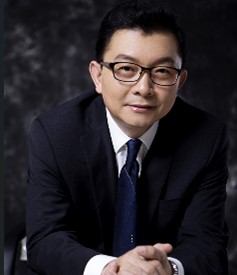 Tan Xiao Sheng
is the Founder, Chairman and CEO of Beijing Genius Cyber Tech Co.,Ltd. He served the Technology President and Chief Security Officer of 360 Group, and special consultant under the Cybersecurity Bureau of Ministry of Public Security and Director and Deputy Secretary-general of China Computer Federation (CCF). He also served as CTO of Yahoo!China; COO and CTO of MySpace China. He was awarded as top of Zhong Guan Cun’s leading talents in 2012, and received an outstanding cybersecurity talent title from China Internet Development Foundation in 2018.
Tan Xiao Sheng
is the Founder, Chairman and CEO of Beijing Genius Cyber Tech Co.,Ltd. He served the Technology President and Chief Security Officer of 360 Group, and special consultant under the Cybersecurity Bureau of Ministry of Public Security and Director and Deputy Secretary-general of China Computer Federation (CCF). He also served as CTO of Yahoo!China; COO and CTO of MySpace China. He was awarded as top of Zhong Guan Cun’s leading talents in 2012, and received an outstanding cybersecurity talent title from China Internet Development Foundation in 2018.
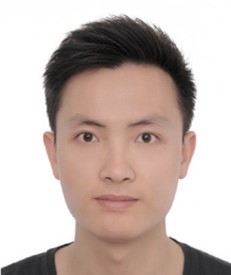 Chuang Wu
is an Assistant Professor in School of Management at Xi’an Jiaotong University. His research interests focused on corporate social responsibility, entrepreneurship, innovation, corporate governance, and corporate strategy. His work has been published in some scholarly journals including Journal of Management, IEEE Transactions on Engineering Management.
Chuang Wu
is an Assistant Professor in School of Management at Xi’an Jiaotong University. His research interests focused on corporate social responsibility, entrepreneurship, innovation, corporate governance, and corporate strategy. His work has been published in some scholarly journals including Journal of Management, IEEE Transactions on Engineering Management.
 Yunfeng Zang
is the senior vice president and chief technology officer (CTO) of Shanghai Yovole Networks Inc. He leads Yovole’s long-term technology vision, and is responsible for the operations and development of Yovole Cloud platform and the Operation Automation products. VP Yunfeng Zang was a founding Director of Board of Bright Internet Project Consortium since July 2019. He proposed and designed the idea of Bright Cloud that his own company Yovole Cloud can adopt for research and operate for business.
This speech covers the introduction of the China national strategy of “West Compute for East Data”, the infrastructure of computility (Compute + Utility) and the network development that reinforces the basis of AI development. Shanghai, as the forerunner, launched the first regional Computility Exchange based upon Shanghai Internet Exchange. This speech will share some of the typical landscapes of the Computility Exchange in associate with AI.
Yunfeng Zang
is the senior vice president and chief technology officer (CTO) of Shanghai Yovole Networks Inc. He leads Yovole’s long-term technology vision, and is responsible for the operations and development of Yovole Cloud platform and the Operation Automation products. VP Yunfeng Zang was a founding Director of Board of Bright Internet Project Consortium since July 2019. He proposed and designed the idea of Bright Cloud that his own company Yovole Cloud can adopt for research and operate for business.
This speech covers the introduction of the China national strategy of “West Compute for East Data”, the infrastructure of computility (Compute + Utility) and the network development that reinforces the basis of AI development. Shanghai, as the forerunner, launched the first regional Computility Exchange based upon Shanghai Internet Exchange. This speech will share some of the typical landscapes of the Computility Exchange in associate with AI.
 Triangulation through multiple studies and/or methods is increasingly common in quantitative research in the information systems (IS) discipline (including electronic commerce). This speech will discuss replication vs. triangulation, mixed methods vs. multiple methods, and why and how we conduct multiple studies in IS research. The speaker will use case studies to illustrate the aforementioned issues, share reflections on conducting multiple studies, and offer suggestions for journal reviewers and editors to better evaluate the need to request additional studies during the paper review process.
Triangulation through multiple studies and/or methods is increasingly common in quantitative research in the information systems (IS) discipline (including electronic commerce). This speech will discuss replication vs. triangulation, mixed methods vs. multiple methods, and why and how we conduct multiple studies in IS research. The speaker will use case studies to illustrate the aforementioned issues, share reflections on conducting multiple studies, and offer suggestions for journal reviewers and editors to better evaluate the need to request additional studies during the paper review process.
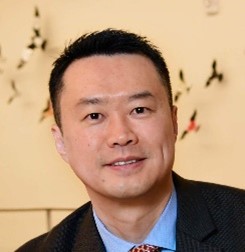 We examine the interaction between a firm's bundling strategy and a platform's distribution contract decision. Under the wholesale contract, we identify a wholesale-price-concession effect, a collective consequence of both upstream bundling and double marginalization, where an increase of market heterogeneity can trigger a lower wholesale price from the firm. Under the agency contract, our analysis demonstrates that the commission rate can have non-monotone effects on the firm's bundling strategy due to a non-cost-bearing effect, whereby an increase in retail price enlarges the proportion of revenue allocated to the firm and is further amplified by the commission rate. We next show when and how the firm makes different bundling decisions under wholesale and agency contracts. We then discuss the platform's optimal distribution contract decision.
We examine the interaction between a firm's bundling strategy and a platform's distribution contract decision. Under the wholesale contract, we identify a wholesale-price-concession effect, a collective consequence of both upstream bundling and double marginalization, where an increase of market heterogeneity can trigger a lower wholesale price from the firm. Under the agency contract, our analysis demonstrates that the commission rate can have non-monotone effects on the firm's bundling strategy due to a non-cost-bearing effect, whereby an increase in retail price enlarges the proportion of revenue allocated to the firm and is further amplified by the commission rate. We next show when and how the firm makes different bundling decisions under wholesale and agency contracts. We then discuss the platform's optimal distribution contract decision.
 This talk presents three progressive research on the change of the mechanism of enterprise value creation: development of the live e-commerce model from the budding stage (2019-2020) to the commercial realization stage (2020-2021) to the commercial explosion stage (2021-present). This study for the first time conducts an in-depth study based on a mixed-methods approach, taking the live e-business established by enterprises as an example, to provide feasible suggestions on how enterprises can optimize the use of digital technologies to create economic and social added value at different stages from the perspective of digital accessibility. The overall aim of the talk is to analyze how digital technology can reconfigure the “People, Product, Place” of live e-commerce so as to help governments, platforms, and enterprises cope with the economic development in the uncertain environment in the post-epidemic era.
This talk presents three progressive research on the change of the mechanism of enterprise value creation: development of the live e-commerce model from the budding stage (2019-2020) to the commercial realization stage (2020-2021) to the commercial explosion stage (2021-present). This study for the first time conducts an in-depth study based on a mixed-methods approach, taking the live e-business established by enterprises as an example, to provide feasible suggestions on how enterprises can optimize the use of digital technologies to create economic and social added value at different stages from the perspective of digital accessibility. The overall aim of the talk is to analyze how digital technology can reconfigure the “People, Product, Place” of live e-commerce so as to help governments, platforms, and enterprises cope with the economic development in the uncertain environment in the post-epidemic era.
 Xi'an Future Artificial Intelligence Computing Center, with the key support of Artificial Intelligence hardware and software infrastructure based on Huawei Ascension architecture, focuses on building a center and creating four ecological platforms to achieve a closed loop of Artificial Intelligence "government-industry-study-research-application", and has provided computing power services for 125 enterprises, universities and scientific research institutions since its operation.
Xi'an Future Artificial Intelligence Computing Center, with the key support of Artificial Intelligence hardware and software infrastructure based on Huawei Ascension architecture, focuses on building a center and creating four ecological platforms to achieve a closed loop of Artificial Intelligence "government-industry-study-research-application", and has provided computing power services for 125 enterprises, universities and scientific research institutions since its operation.





